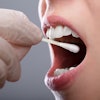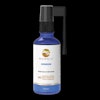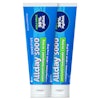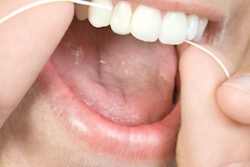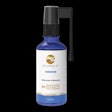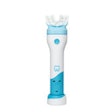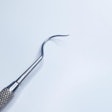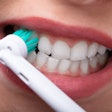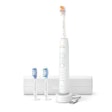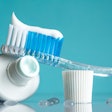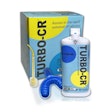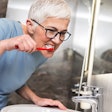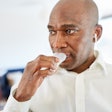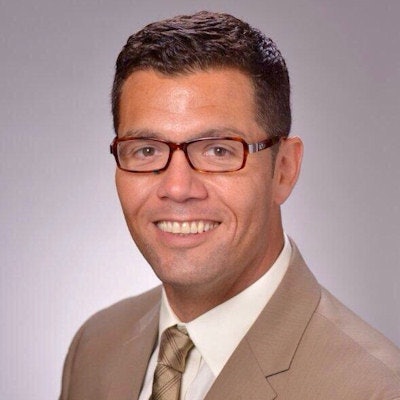
Both consumers and dental professionals were left scratching their heads last week after the publication of an article by Associated Press (AP) that questioned the evidence behind flossing. But Marcelo Araujo, DDS, PhD, the vice president of the ADA's Scientific Institute, is excited about the possibility that dentists can have a meaningful conversation with their patients about oral healthcare.
 Marcelo Araujo, DDS, PhD.
Marcelo Araujo, DDS, PhD.Quoted to some effect in the August 2 report that questioned the clinical evidence behind flossing, Dr. Araujo prefers to take the long view.
"What excites me the most is that people are talking about dentistry and oral health," Dr. Araujo said in an exclusive interview with DrBicuspid.com. "[The article] is something that has really lifted oral health to a different level, which is very good for our patients and for dental professionals."
Dr. Araujo leads research projects and manages the ADA's research agenda, including the Council on Scientific Affairs, Center for Evidence-Based Dentistry, Seal of Acceptance program, and others.
Flossing conversation
The AP article cast into question the clinical evidence supporting the practice of flossing. The widely reported and commented-on article examined 25 peer-reviewed studies on the effectiveness of flossing and found weak or unreliable evidence that flossing had long-term benefits. The article also addressed ADA's process for granting its Seal of Acceptance.
While there are mixed feelings about the article, Dr. Araujo saw the reaction as being focused on the clinical evidence that is readily available.
"We see that flossing is effective," he said.
“What excites me the most is that people are talking about dentistry and oral health.”
Dr. Araujo noted an increase in traffic to the ADA website and its consumer site, mouthhealthy.org, since the article was published.
"By bringing the topic to life, it allowed for the conversation between patient and dentist, and bringing people into the office is the most important," he said. "We want to make sure people brush their teeth twice a day, use floss or an interdental flossing device once a day, and see their dentist at least twice a year. To me that is what is most important."
The AP article found that the clinical evidence supporting flossing was often considered "weak, very unreliable," and of "very low" quality. Dr. Araujo said he tried to explain how evidence-based science in dentistry is not related only to systematic reviews or clinical studies.
"We consider evidence as a whole," he said. "It's not just papers that have been published here in the U.S. but also the clinical applications of the data and clinical practice of our members."
It's about providing the optimal benefits to the patient.
"When you talk about a matter such as this, you really have to look into what clinical studies are out there," Dr. Araujo said. "But also you have to consider what is the common practice in our profession. What are the patient's needs? How can we put it all together in a way that will benefit the patient? That is our main goal."
He said he understood the concerns about flossing if only viewed through the lens of a systematic review.
"In terms of flossing, I understand that the evidence that is out there in terms of systematic review and data may not be as strong as we see for other areas in dentistry, but it is evidence," he said. "And [the evidence] shows that flossing really works, especially if you include the whole category of interdental cleaning."
What it comes back to for him is the crucial patient-dentist conversation.
"People have to have the conversation with their dentist and understand what is best for them," Dr. Araujo said. "It's important that everybody understand that the ADA position is brushing twice a day, flossing or interdental cleaning once a day, and see your dentist frequently, at least twice a year."
Seal program concerns
The validity and independence of the ADA's Seal of Acceptance program also were examined in the AP article. The article cited the annual fees charged to manufacturers and noted that the design and data collection of the studies that could lead to a seal being awarded were left to the individual manufacturer.
Dr. Araujo expressed confidence in the ADA's Seal of Acceptance program, while acknowledging that certain information about the program was omitted from the article. The program has been around for more than 80 years and includes layers of independent clinical review, according to Dr. Araujo.
"I don't have any concerns about the Seal of Acceptance program," he said. "The guidelines of the program reflect the ongoing innovation in dental products."
Each application from a manufacturer for a Seal of Acceptance is reviewed by ADA's Council on Scientific Affairs, which is composed of 17 independent researchers from different U.S. universities, he told DrBicuspid.com.
"The council looks at a proposal and defines the method, the requirements, and the research protocol," Dr. Araujo said. "Yes, the manufacturers do the research, but if a company can't follow the protocol, they can't be part of the program."
All the information from the research is provided to the council for evaluation, Dr. Araujo explained.
"Sound and unbiased research has to be the goal, because we need to make sure that people are buying and using products that are safe and effective," he said.
Dr. Araujo noted that the ADA and the council are always looking for ways to improve the Seal of Acceptance program.
"We have to adapt to the technology that is out there and make sure the dentist understands the science that supports the clinical safety and efficacy of the products that have a Seal," he said.
